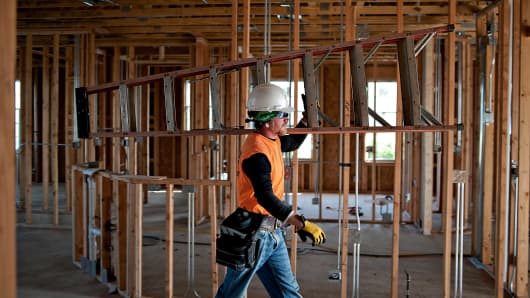During the housing crash, two million construction workers left the field, many of them never to return. Even as the housing market moves into recovery, government reports today show continued losses in the construction workforce. The problem is a lack of skilled labor..
(Read More:Are Employers to Blame for 'Skills Gap?')
"In the past, when the [housing] starts were up to a million and a half, you could come on a job site and do on the job training," says John Courson of the Home Builder's Institute, a non-profit group working with the Department of Labor's Job Corps to train new construction workers. "What we see now is employers want to hire skilled workers, and that's what we're producing with our students, are those who can go on the job site and go to work."



